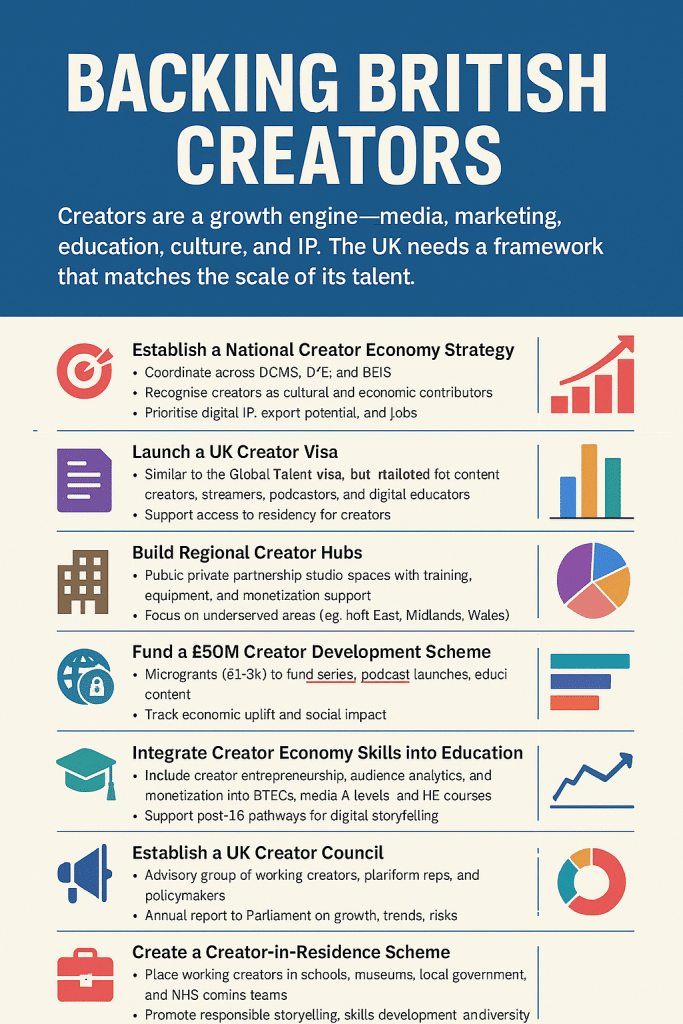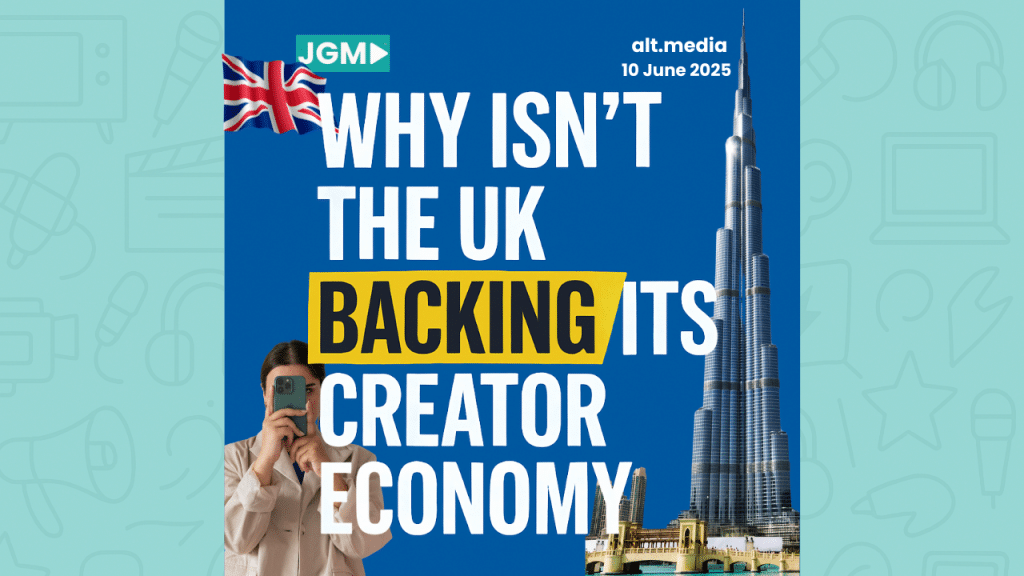The UK creator economy has become one of the most dynamic and fastest-growing segments of the global digital economy. It’s powered by individuals—creators—who build audiences and revenue through platforms like YouTube, TikTok, Instagram, Twitch, and Substack. What began as influencer marketing has matured into a broad-based economy encompassing education, entertainment, journalism, ecommerce, and even public health communication.
In the UK, creators generate billions in value. According to YouTube, British creators contributed £1.4 billion to the UK economy in 2021 alone, supporting over 40,000 jobs. And that’s just one platform. When combined with other platforms and digital media work, the UK creator economy is a major force for employment, innovation, and soft power.
But here’s the problem: the UK has no national policy to support this sector.
Creators HQ Dubai
Unveiled on 12 January 2025, Creators HQ Dubai offers creators visa support, co‑working, production facilities, and a $40.8m fund, aiming for 10,000 creators globally. It started strong with 100 Founders—including Dhar Mann and Supercar Blondie—fast‑tracking permissions and creative growth.
Dubai’s Momentum
- Founders include Dhar Mann, Supercar Blondie, Yes Theory, Germán Garmendia, and Surthany Hejeij, all reporting improved productivity, community, and support systems.
- Perks: 10-year visas, business setup support, platform partnerships, and production concierge services.
A Global Push
Other nations are also investing:
- India: $1 bn Creator Fund + creative tech institute
- Australia (Queensland): YouTube Channel Lab accelerator
- USA: WP Ventures Creator Hub—journalism meets social video
- Google Creator Labs: worldwide mentorship cycles
- Abu Dhabi: twofour54 media zone
- Nigeria/Ghana/Uzbekistan: creative co‑work incubators
Where’s the UK creator economy policy?
Despite having major talents—KSI, Patricia Bright, and Tom Scott—the UK lacks:
- A national creator visa
- Government-backed creative studio hubs
- A coherent industrial strategy for the creator economy
- Formal partnerships with YouTube, TikTok, Meta, etc.
Instead, support is patchy via private initiatives or ad-hoc co-working spaces—no unified national effort. In the spending review of 2025 there were some great initiatives in the tech communities but there was nothing for content creators. That’s why I created my manifesto dor content creators, and you can download a copy below. No sign ups lead magnets.
Economic Stakes: What the UK Creator Economy Is Missing
- The broader creative industries contributed £124.6 bn GVA and employed 2.4 m people in 2022 (5.7% of UK GVA) .
- YouTube’s UK creator ecosystem had £1.4 bn GDP impact and supported ~40,000 full-time jobs in 2021 .
- The digital economy overall is worth £240 bn GVA, with 3.4 m jobs, rising to £340 bn when including online retail .
- Globally, the creator economy is predicted to surpass £165 bn by 2026, rising to £396 bn by 2027 .
Yet the UK has no flagship creator programme—despite this economic scale. It was disappointing there were no references to the UK creator economy in the spending review 2025.
Final Take
Dubai is sending a clear signal: creators matter—and we’ll invest accordingly. The UK, home to powerhouse digital talent, lacks a coherent national strategy. That’s not just a cultural oversight—it’s an economic one. To harness billions in GDP growth, job creation, and global cultural influence, the UK needs bold, actionable policy—not piecemeal approaches.
#CreatorEconomy #UKPolicy #DigitalEconomy #CreatorsHQ #DubaiCreators #GDP #CreativeIndustries
The Creator Manifesto for the UK Creator Economy




